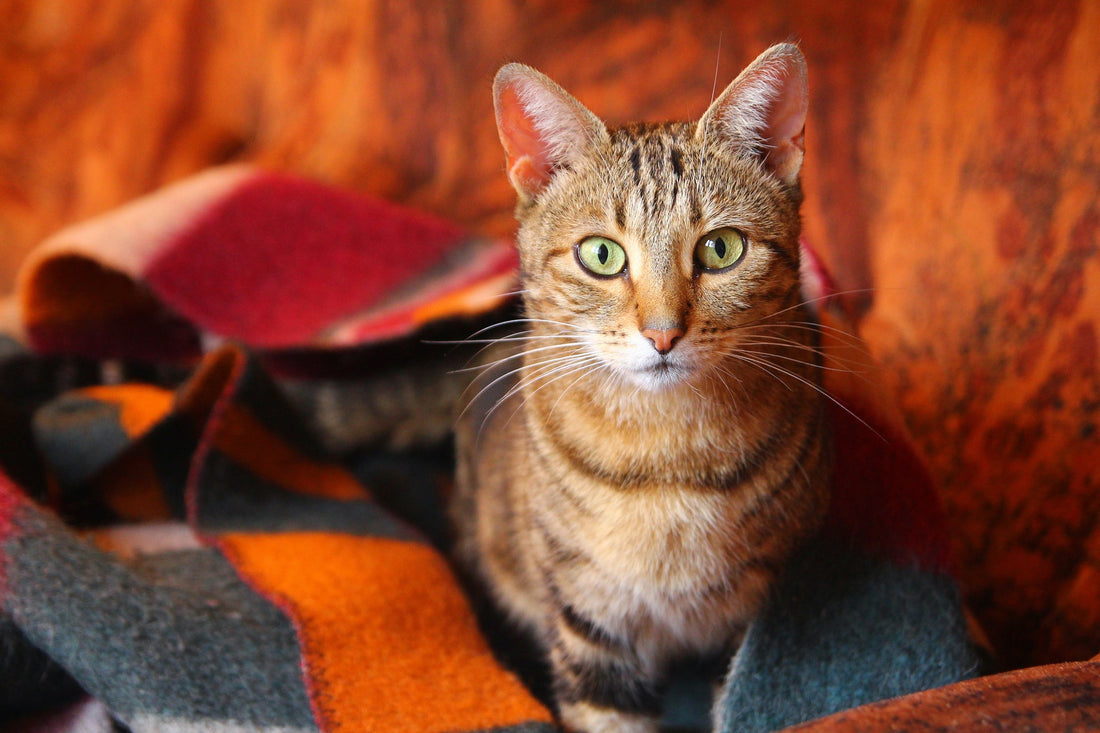Cats are prone to some specific illnesses. Knowing what ails your cats and why will keep them from being sidelined by discomfort and help you determine the right treatment to get them healthy again.
Here are 7 common cat health problems to watch for:
Vomiting
Vomiting is a very common problem with cats. Its causes range from minor intestinal upset, such as from eating plants, spoiled food, or foul-tasting things, to metabolic diseases, such as kidney disease, diabetes, and hyperthyroidism. Vomiting can quickly leave cats dehydrated, so if your cats continue vomiting, call your vet right away.
Read more about vomiting in cats here!
Diarrhoea
There are many potential causes of diarrhoea in cats, including inflammatory bowel disease, allergies, infections, liver disease, and more. Depending on its cause, diarrhoea can last for a day, a week, or months. Take your cats to your vet if they still have diarrhoea after a day or immediately if you notice poor appetite, lethargy, or vomiting.
Read more about diarrhoea in cats here!
Dental disease
Gum disease in cats is a common problem and occurs when plaque (which is a bacteria) grows on the surface of the teeth. If plaque isn't cleaned from the teeth, then it will turn to tartar. Tartar is very difficult to remove and can cause serious infection. Always try to give your cats a mixture of dry and canned food. Dry food is a good way to help clean the teeth.
Read more about cleaning cat teeth here!
Ear mites
Ear mites are quite common in cats that spend some time outdoors. Easily passed between cats, ear mites are tiny parasites that can affect the ears and skin around the ears. If your cats' ears look red or sore, there is a brownish, coffee-ground-like discharge, or your cats are shaking their head or scratching at their ears excessively, seek veterinary advice. It may be due to the presence of ear mites.
Read more about cleaning cat ears here!
Fleas
Fleas are a very common external health problem. Signs your cats have fleas include:
- Scratching, biting or gnawing at the fur
- Fur loss from scratching and itching
- Redness
- Pepper like black specks on the skin (flea feces)
- Light colored specks in the coat
If the problem becomes serious, your cats risk anemia. So be sure to treat your cats' flea problem and prevent future infestations, and talk to your vet about which flea control would be best for your cats. Treatments include shampoos, sprays, as well as topical solutions and oral medications.
Read more about flea control in cats here!
Worms
Cats can acquire a variety of intestinal parasites and infestations may be completely asymptomatic or severe, depending on the type of worm and severity of the infestation. ASPCA advises to keep your cats indoors to avoid exposure to infected cats, rodents, fleas and feces. It's also important to frequently dispose of stool. Ask your vet to recommend an appropriate internal parasite treatment or prevention program for your cats.
Obesity
If your cats are obese, then they risk developing all sorts of related conditions, such as heart disease, kidney disease, arthritis and many more. Indoor cats are especially susceptible to developing weight problems and diet should be monitored properly.
Read more about maintaining a healthy weight for cats here!
Featured image by Nikita Belokhonov

